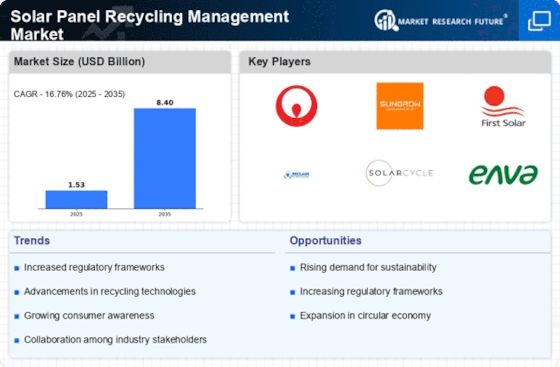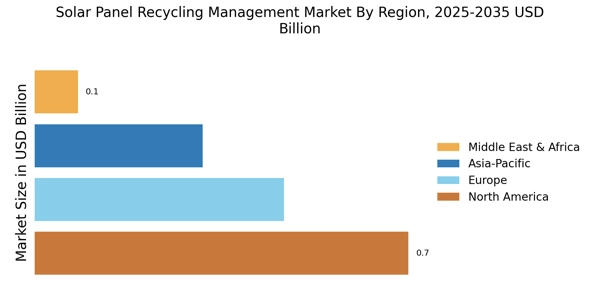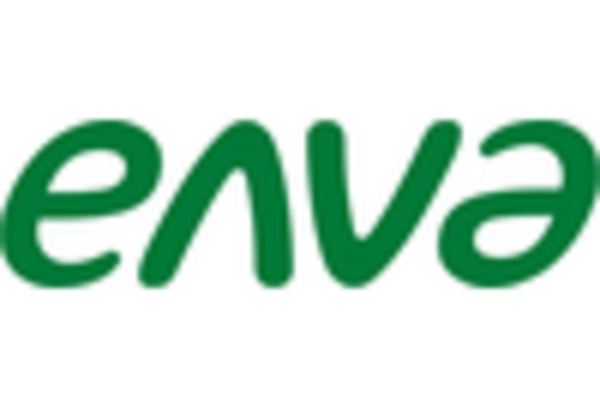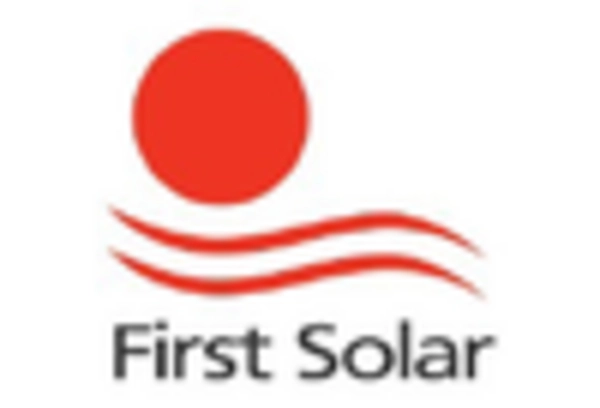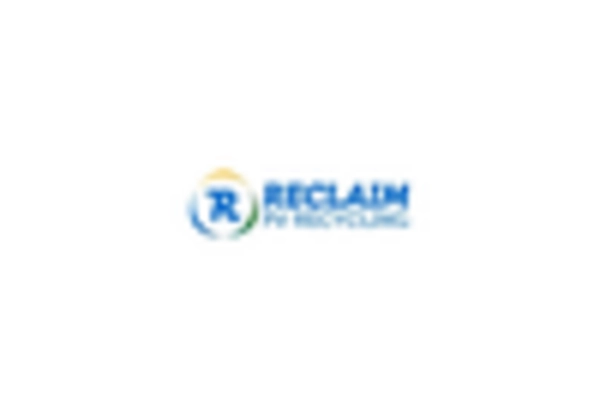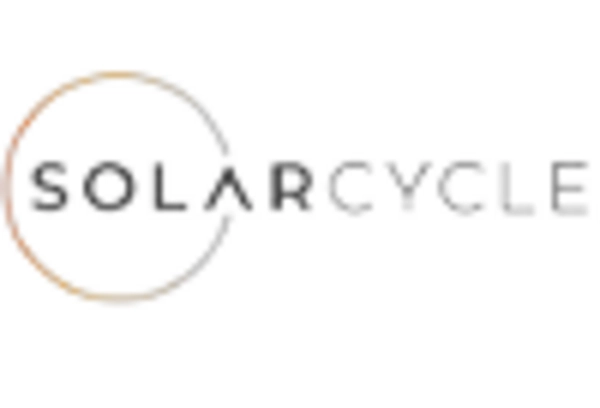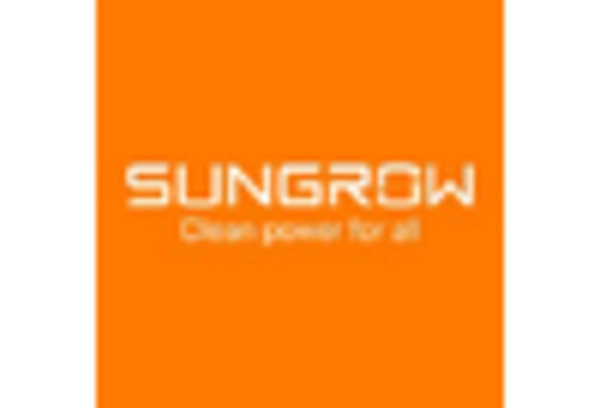Economic Incentives for Recycling Initiatives
The Solar Panel Recycling Management Market is also driven by economic incentives that encourage recycling initiatives. Governments and organizations are increasingly recognizing the economic benefits of recycling solar panels, which can lead to job creation and resource recovery. Financial incentives, such as subsidies or tax breaks for recycling facilities, are being introduced to stimulate investment in the sector. This economic rationale is likely to attract more players into the market, fostering competition and innovation. As the industry matures, these incentives may play a crucial role in establishing a robust recycling framework that not only addresses environmental concerns but also promotes economic growth.
Rising Demand for Sustainable Energy Solutions
The Solar Panel Recycling Management Market is benefiting from the increasing global demand for sustainable energy solutions. As more countries commit to renewable energy targets, the installation of solar panels is on the rise. This growth in solar energy adoption leads to a corresponding increase in the volume of end-of-life panels that require recycling. Market data indicates that by 2030, the volume of solar panel waste could reach approximately 78 million metric tons. This burgeoning waste stream necessitates effective recycling management strategies, thereby propelling the market forward. The emphasis on sustainability is likely to encourage investments in recycling technologies and infrastructure, further enhancing the industry's growth prospects.
Consumer Awareness and Corporate Responsibility
The Solar Panel Recycling Management Market is witnessing a shift in consumer awareness regarding sustainability and corporate responsibility. As consumers become more informed about the environmental impacts of solar panel waste, they are increasingly demanding that manufacturers adopt responsible recycling practices. This heightened awareness is prompting companies to implement transparent recycling programs and communicate their sustainability efforts to consumers. Market trends suggest that businesses that prioritize recycling and sustainability are likely to gain a competitive edge. Consequently, this consumer-driven demand is expected to propel the growth of the recycling management market, as companies strive to align their practices with the values of environmentally conscious consumers.
Regulatory Frameworks and Compliance Requirements
The Solar Panel Recycling Management Market is increasingly influenced by stringent regulatory frameworks aimed at promoting sustainable waste management practices. Governments are implementing policies that mandate the recycling of solar panels, thereby creating a structured approach to waste management. For instance, regulations may require manufacturers to take responsibility for the end-of-life disposal of their products. This regulatory pressure is likely to drive the market forward, as compliance becomes essential for manufacturers and recyclers alike. The market could see a rise in partnerships between manufacturers and recycling firms to ensure adherence to these regulations, potentially leading to a more organized recycling ecosystem.
Technological Advancements in Recycling Techniques
The Solar Panel Recycling Management Market is experiencing a surge in technological advancements that enhance recycling efficiency. Innovations such as hydrometallurgical processes and automated sorting systems are being developed to recover valuable materials like silicon, silver, and rare metals from end-of-life solar panels. These advancements not only improve recovery rates but also reduce the environmental impact associated with traditional recycling methods. As a result, the market is projected to grow significantly, with estimates suggesting a compound annual growth rate of over 20% in the coming years. This trend indicates a shift towards more sustainable practices within the industry, as companies invest in research and development to optimize recycling processes.


